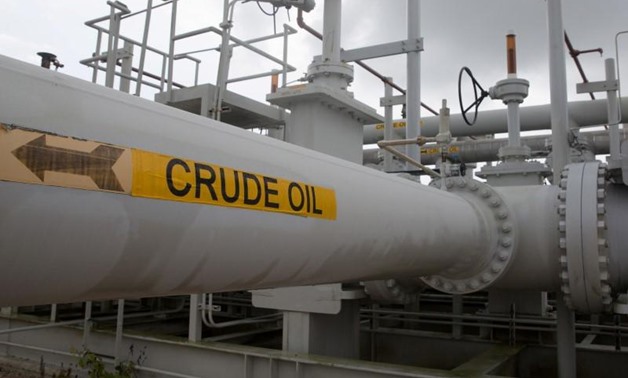
A maze of crude oil pipes and valves is pictured during a tour by the Department of Energy at the Strategic Petroleum Reserve in Freeport, Texas, U.S. June 9, 2016. REUTERS/Richard Carson
CAIRO – 6 April 2022: The European Union (EU) is officially going to rely heavily on Libya to diversify its energy sources, away from Russian oil and gas, while the Libyans hope that this will contribute to pushing Europe to speed up resolving the country's crisis to secure production and export operations.
The European Union's spokesperson for the Middle East and North Africa Luis Miguel Bueno said that Europe will rely heavily on Libya in the coming period to diversify its sources of gas and energy, amid the dispute between the union and Russia over the war crisis against Ukraine.
He added that talks are ongoing between Libya and Italy in this regard, and it is expected that several European countries will move to invest in Libyan oil.
Libyan economic experts and politicians believe the increasing importance of Libyan oil and gas may contribute to pushing European countries to solve the Libyan crisis by finding a quick political solution that guarantees the security of oil and gas export, especially since instability led in earlier times to militias and gangs taking control over oil fields and disrupting production.
Libya is torn by the crisis between the previous government headed by Abdel Hamid al-Dabaiba and the current one led by Fathi Bashagha, with militia activity continuing to control several facilities in Western Libya.
Libyan political analyst Ibrahim al-Fitouri says that Europe's need for gas and oil may push it to find a rapid solution to the crisis in Libya, where political and security issues may stand in the way of Europe's desire to make the most of oil and gas. Fitouri expected the world would not allow the Libyan oil to be stopped, and this might be reflected in improving the conditions of the oil sector, which needs maintenance operations for refineries and exploration of new fields.
Furthermore, the economic expert, Sherif al-Araqib, emphasized the need to stabilize the situation in Libya, carry out major maintenance operations, and explore new areas, to increase Libya's share of European imports. He said that Italy relied on 50 percent of Russian gas for its imports, while Libya depends on only 2 percent.
A World Bank report expected that the Libyan economy may witness an improvement in the level of growth if gas exports to Europe increase.
Libya has previously expressed its willingness to increase gas pumping to Europe, according to Chairman of the Board of Directors of the Libyan Oil Corporation, Mustafa Sanalla. Sanalla said that his country is focusing on raising gas production rates, especially since Libya has a strategic location due to its proximity to the European market, and it has massive reserves of gas.
The European Union gets 40 percent of gas and 30 percent of oil from Russia. Libya has the ninth largest known oil reserves in the world and the biggest oil reserves in Africa.
The dizzying developments in Libya's oil fields have come amid a mounting standoff between two rival governments which threaten to again drag the country into chaotic infighting.
Comments
Leave a Comment